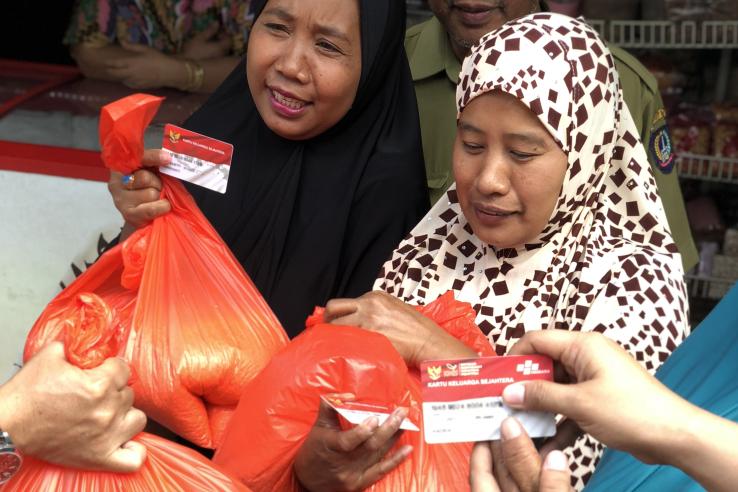Evidence for Social Protection Policy: Introducing the Social Protection Initiative

Worldwide, social protection programs such as cash or in-kind transfers and social insurance are growing in scope to help combat poverty and reduce inequality in low- and middle-income economies. As these programs continue to expand, it is critical that governments build robust systems that can both address long-term poverty and help vulnerable households adapt to economic, health, climatic, or other shocks.
To spur a new body of rigorous impact evaluations on social protection, J-PAL and Evidence for Policy Design (EPoD) recently established the Social Protection Initiative (SPI) to fund policy-relevant research on social protection programs in low- and middle-income countries.
In this webinar, speakers will discuss the value of rigorous research on innovations in social protection, highlight areas for future research, and present the opportunities and constraints faced by policymakers implementing social protection programs on the ground.
--
Social protection refers to policies and programs that provide financial assistance to low-income families, insure against shocks, and break poverty traps. Over the past few decades, these programs, such as cash transfers, “workfare” programs that require those receiving benefits to participate in work or job training, and social insurance programs like unemployment benefits, have become widespread tools to reduce poverty and inequality.
Low- and middle-income countries have become a significant part of this story as they increasingly adopt social protection schemes. Designing programs for these contexts, however, entails challenges that differ from those faced in higher-income economies. While there have been recent advances in social protection research within low- and middle-income countries, more robust and rigorous research on the most effective forms of program design and implementation is needed to answer key policy questions. In response to this need, J-PAL and EPoD will foster the generation of rigorous evidence on social protection through the new Social Protection Initiative (SPI).
This webinar will feature remarks from academic and policy experts in social protection on the importance of rigorous research in social protection, areas for future research, and the goals for SPI, as well as a panel discussion with policymakers who will share their experiences implementing social protection programs on the ground.
Speakers
- Kurfi Abubakar Muhammad, Head Policy, Planning and International Collaboration Division, National Health Insurance Scheme (Nigeria)
- Alejandra Candia, Former Head of the Secretariat of Social Evaluation, Ministry of Social Development and Family of Chile
- Rema Hanna, Jeffrey Cheah Professor of South-East Asia Studies, Harvard Kennedy School
- Lisa Hannigan, Senior Social Protection Specialist / Director, Australian Government Department of Foreign Affairs and Trade
- Benjamin Olken, Jane Berkowitz Carlton and Dennis William Carlton Professor of Microeconomics, MIT